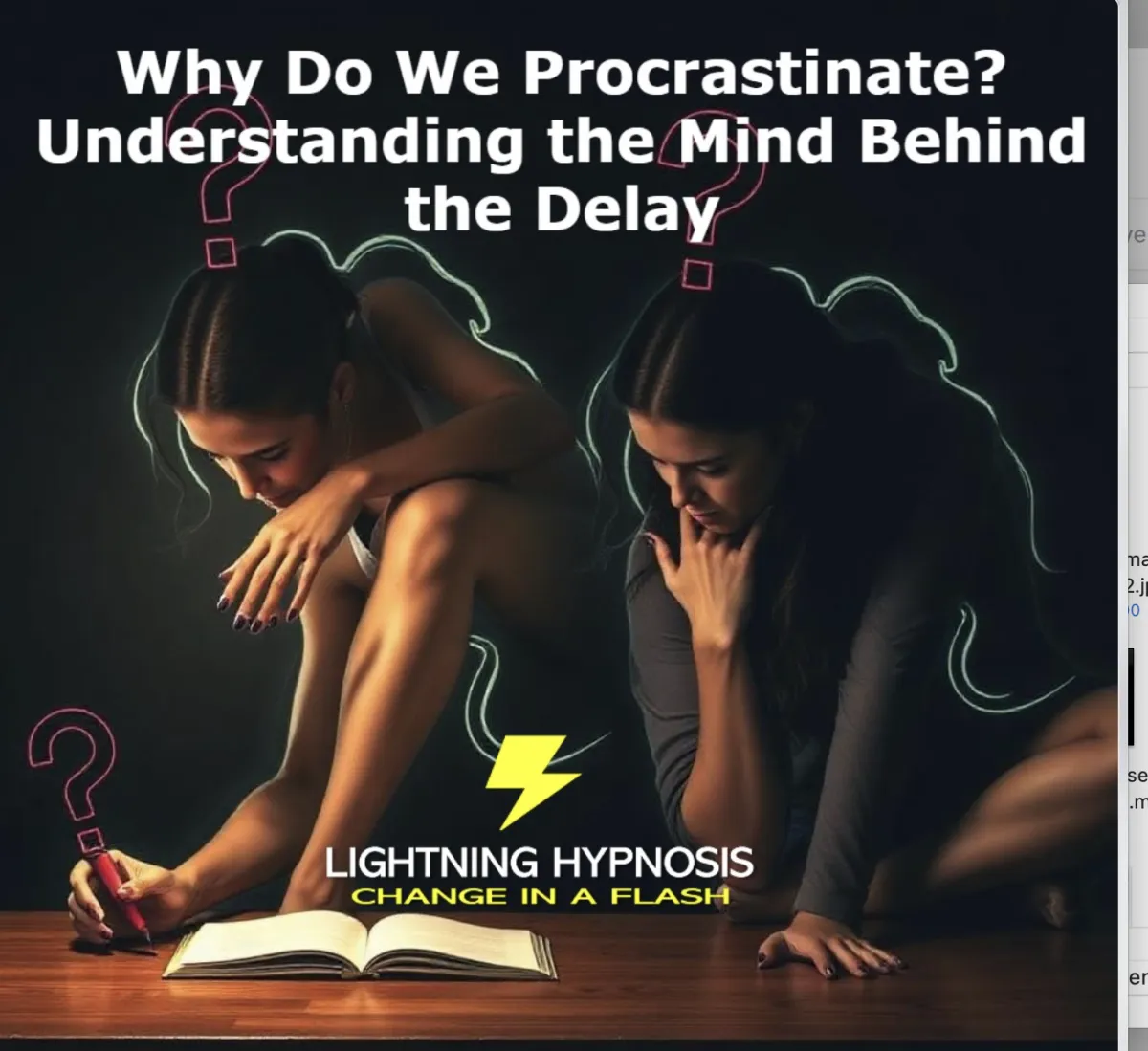
🧠 Why Do We Procrastinate?
🧠 Why Do We Procrastinate?
Understanding the Mind Behind the Delay
We’ve all done it: put off a task until the last minute, told ourselves "I'll do it tomorrow," or avoided something important in favor of something easier. Procrastination is part of being human, but why is it so common?
In this blog, we’ll explore:
Why Do People Procrastinate?
Procrastination isn’t just about being lazy, it’s often tied to our emotions, stress levels, and thinking patterns. Common reasons include:
Fear of failure: We avoid tasks we're afraid we won't do well.
Perfectionism: If it can’t be perfect, we’d rather not start.
Overwhelm: When tasks feel too big or complicated, we freeze.
Lack of motivation: Without a clear “why,” it’s easy to put things off.
Distractions: Social media, TV, or even chores can steal our focus.
Poor time management: Sometimes, we just haven’t learned how to prioritize.
Symptoms of Procrastination
Procrastination often looks like this:
How to Avoid Procrastination
Procrastination can be managed and even prevented. Try these strategies:
Break tasks into small steps
Big projects are overwhelming. Smaller steps feel doable.Use timers (Pomodoro Technique)
Work for 25 minutes, then rest for 5. Repeat.Set realistic goals
Focus on progress, not perfection.Eliminate distractions
Silence your phone, close tabs, and create a focused space.Use a reward system
Treat yourself after completing a task, coffee, walk, or Netflix.Start with the hardest task
“Eat the frog” first, everything else feels easier after.
Is Procrastination Laziness or a Mental State?
Many people label procrastinators as lazy, but that’s rarely the case. In fact, procrastination is usually a coping mechanism, not a character flaw. It's how the brain tries to avoid discomfort, fear, or uncertainty.
Procrastination can also be linked to:
That’s why it’s important to approach it with self-compassion, not shame.
Benefits of Taking Action
When we take action, especially when we don’t feel like it, we build:
Momentum: Action leads to motivation (not the other way around)
Better results: Less rushed work usually means better quality
Conclusion
Procrastination is a normal part of life, but it doesn’t have to control you. By understanding why, it happens and using practical tools to push through, you can regain your time, your peace of mind, and your momentum.
Remember: action doesn’t need to be perfect; it just needs to begin.
Written by: MLS & PP Rosario A. Zaragoza
“If you don't speak, you would never go forward.”
Written exclusively for Master Hypnotist and Complete Mind Therapist Chuck DeBroder and Lightning Hypnosis ⚡
If you feel like you need some guidance on identifying and then erasing your challenges, book a free 45 Hypnotic Mindshift Session and Consultation here: Book a Call Now
or call +1-915-203-3007 and let's chat.
